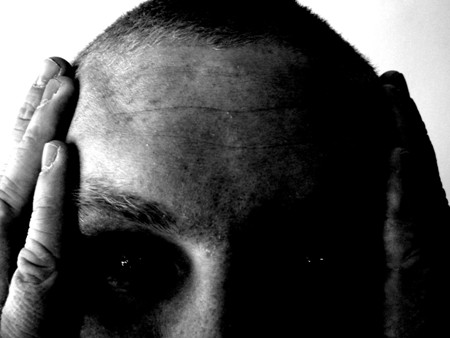
It is quite easy to mistake an anxiety attack for a panic attack and vice versa. However, for effective treatment and management, it is necessary to learn to distinguish between the two. Here’s how you can find out whether you are suffering from an anxiety or panic attack.
Duration of time
One of the major factors that distinguishes anxiety from a panic attack is the duration of its existence. An anxiety attack may last for days, weeks or even months, whereas a panic attack lasts only for around 30 minutes. The symptoms of panic attack develop faster than those of anxiety. A panic attack is repetitive in nature and surfaces for a duration of 20-30 minutes continuously. On the other hand, an anxiety attack is an ongoing phenomenon which goes on for the entire duration of a few hours to a few months.
Disturbed sleep as a symptom of anxiety
If you are under the grips of an anxiety attack, the condition will be that you will not be able to get adequate sleep for nights. Here proper sleep is synonymous with sound sleep. For the entire period of anxiety, which may last up to a month, the person suffers from nightmares and disturbances. On the other hand, a person suffering from panic attack will face only momentary disturbances in sleep. Momentary means the span of attack (about half an hour). For the rest of the period (expect the attack period) he or she will have proper continuous sleep.
Breathing disorders
A person suffering from anxiety experiences shortness of breath. He/she feels breathless most of the time. The duration of breathlessness can last from a few hours to a few months. This leads to state of nausea and dizziness. On the other hand, a patient of panic attack suffers from ‘hyperventilation’. It is a state in which the patient experiences heavy breathing during the attack period. The state of hyperventilation is limited only to the duration of the attack period which lasts only for around 20-30 minutes. The patient of panic attack otherwise experiences normal breathing rates.
Reason behind the attack
This feature marks clear cut difference and must be noted down. Anxiety attacks are results of continuous strenuous thinking over a subject that may include career, finance, relationships, family, or examinations. Reasons differ with individuals depending on their life situation. Doctors say that deep and continuous thinking over a subject tends to develop roots deep down the mind, resulting in anxiety. However, a panic attack is instantaneous and can occur all of a sudden without any specific reason. Sudden news about a subject that holds importance in your life might become a reason. Still, 90 percent of the reasons behind panic are unexplored and are blamed on the attributes of a person’s lifestyle.
Difference in social behavior
People suffering from panic attacks are usually very social and love interacting with people. They behave normally except during the few minutes of the panic attack. They are extrovert in nature. It has been observed that the therapy rooms for patients of panic attacks are lively, vibrant, and full of noise. On the contrary, sufferers of anxiety attack are rather anti-social and do not enjoy interacting with people. They are mostly introvert in nature. Though they want to share their worries and problems with others, the fear of being noticed holds them back. The therapy rooms for patients of anxiety attack are found silent and dormant. The fear of anticipatory embarrassment and increased level of anxiety holds them back from interacting with people.
Inclusion of phobias
The context of the attacks leads to the development of different phobias in a person, and are hence useful for classification. An anxiety attack gives rise to phobias like obsessive compulsive disorder, separation anxiety disorder, generalized anxiety disorder to name a few. Any phobia stated above gives way to high anxiety and is one of the distinguishing factors between panic and anxiety. For a clearer understanding, a person suffering from anxiety develops social phobias and finds it difficult to face a crowd. During the entire duration of anxiety attack (a few hours to months) a sufferer of anxiety develops the feeling of being an introvert because of the developments of these fears. However, in a panic attack an individual is normal throughout except during the duration of the panic which lasts for a maximum of thirty minutes. That means, as such, there is no phobia that is developed in case of panic for the very simple reasons that a panic attack is an event which lasts only a few minutes.
Severity of symptoms
Many symptoms of anxiety and panic attack have a lot in common. What differentiates the two disorders is the severity of these symptoms. Unlike a panic attack, the symptoms of anxiety are less intense. The level of intensity of the symptoms can vary from person to person. In case of anxiety, the symptoms are not attributed to a single situation but to a cluster of causes. The symptoms of anxiety are long lasting, whereas in case of a panic attack the symptoms last only for a few minutes’ duration. The major symptoms include sweating, dizziness, chill, nausea, shaking of the body, fear of passing out, palpitating heart, muscle tension, insomnia, irritation, etc.
Development of agoraphobia
Anxiety can result in the development of agoraphobia which is characterized by a state of obsessive behavior and self preservation. A patient of anxiety ends up limiting his activities and captivating himself (not literally). An anxiety sufferer restricts his/her social circles and pulls them even closer, which in turn develops other social phobias, aggravating the problem. On the contrary, a panic attack normally doesn’t result in any such state or development of social phobia. This distinguishing factor can be witnessed effectively by a doctor clinically.
Unpredictability of the attack
One of the distinguishing features between anxiety and panic attack is the capability of its prediction. Unlike an anxiety attack, a panic attack is unpredictable. An anxiety attack being a result of cumulative worries and tensions can be predicted and anticipated. On the other hand, a panic attack is instantaneous and occurs all of a sudden. It is not a result of the reaction to a stressing agent like an anxiety attack. Therefore, the prediction of a panic attack is almost impossible.



